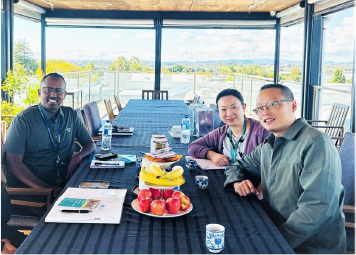Supporting Diverse Families in Child Disability Services | The Role of Cultural Case Workers
New Zealand offers a wide range of services for children with disabilities, developmental delays, and health concerns. However, the system can be complex and difficult to navigate, especially for families from refugee and migrant backgrounds who may be unfamiliar with the New Zealand health system and face language barriers. Health literacy, cultural differences, and unique migration experiences further compound these challenges.
According to the 2023 Census, New Zealand’s resident population was 4,993,923. Of this, 29% were born overseas. 19% identified as Asian, Middle Eastern, Latin American, or African (MELAA). Auckland, the country’s largest city, had a population of 1,656,486—33.2% of the national total. Notably, 42.9% of Auckland’s population were born overseas, and 59% identified as Asian or MELAA. While specific data on disability prevalence within MELAA communities is limited, Waitaha – Ministry of Disabled People reports a disability rate of 13% among Asian populations.
A 2006 needs analysis across Auckland revealed that while approximately a quarter of referrals to child development services came from refugee and migrant backgrounds, disparities existed in access to needs assessments, support services, and equipment. In response, Waitematā introduced Cultural Case Workers (CCWs) to Child Community Health (CCH) in 2009.
CCH supports children aged 0–18 with disabilities and/or health issues, and their families. The multidisciplinary team includes paediatricians, neurodevelopmental therapists, speech-language therapists, nurses, physiotherapists, occupational therapists, psychologists, dietitians, social workers, and cultural case workers.
Sixteen years on, the current CCW team includes Evan Shih, Ting Xu, and Abdulaziz (Abdul) Mohamud, covering North Shore and Waitākere. Evan, originally from Taiwan, speaks Mandarin and holds a Bachelor of Social Work and Social Policies from Taiwan and a postgraduate diploma in Social Work from Massey University. Ting, also a Mandarin speaker from China, has a Bachelor of Health Science in Public Health. Abdul, originally from Kenya, speaks Swahili, Somali, and some Arabic. He holds a Bachelor of Laws and a Bachelor of Arts in International Studies and has extensive experience in both the disability and refugee sectors.
Although based within CCH, CCWs also support families in Rangatira Children’s Ward at Waitākere Hospital, Special Care Baby Units (SCBU) at North Shore and Waitākere hospitals, and Wilson Rehabilitation Centre for Children. They receive referrals from GPs, the Ministry of Education, Kaika Ranga (formerly Taikura Trust), other professionals within CCH, and self-referrals.
Cultural case workers act as cultural bridges between families and health professionals. Their work centres on advocacy, empowerment, and helping families navigate the health system. They facilitate communication—not by interpreting, but by explaining medical terminology, clinician roles, treatment plans, and health models that may be unfamiliar to families. Their lived experience and cultural understanding are invaluable, a sentiment echoed by both the CCWs and Kerri Sheehan, Senior Social Worker at CCH.
Kerri notes that while social workers and CCWs may appear to have overlapping roles, CCWs operate through a cultural lens and with a community focus. They often work independently with families, but also collaborate closely with the social work team, including monthly case reviews and participation in multidisciplinary and complex case meetings. Their insights into cultural and religious practices are frequently sought by other professionals, and they deliver cultural presentations on request.
One challenge the team highlighted is the lack of awareness among some clinicians about the CCW role, which is sometimes confused with that of interpreters. While CCWs may speak multiple languages and communicate directly with families, they are not interpreters and should not be expected to interpret during clinical sessions. When language support is needed, clinicians must book interpreters through services such as WATIS at Waitematā.
Given the ethnic diversity of the Waitematā region, the team believes that expanding the CCW team to include representatives from other cultural groups—such as Latin American communities—would enhance culturally specific support. While they refer families to NGOs offering such support, these services are limited. With over 200 ethnicities represented in New Zealand, providing culturally specific support for all is a challenge. Therefore, developing cross-cultural skills that can be complemented by culturally specific knowledge is essential.
Kerri emphasises the importance of upskilling in cross-cultural practice, increasing cultural awareness, and building networks with external agencies—despite time constraints. She suggests that making training programmes like eCALD mandatory could help health professionals gain the tools needed to work respectfully and effectively across cultures.
